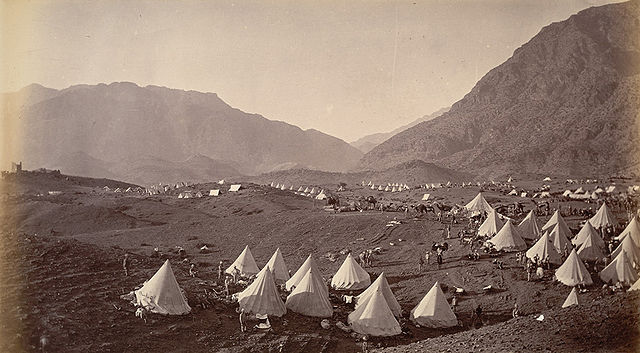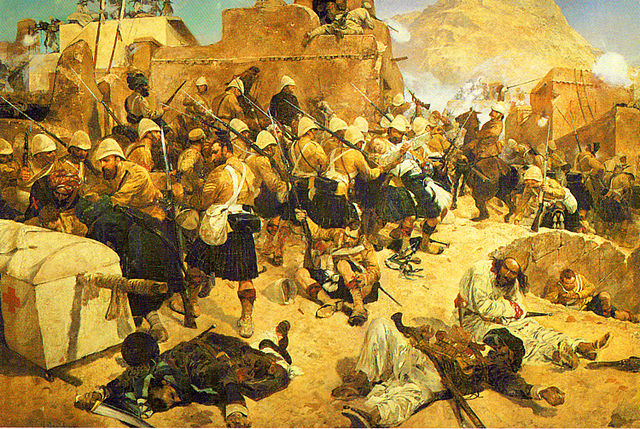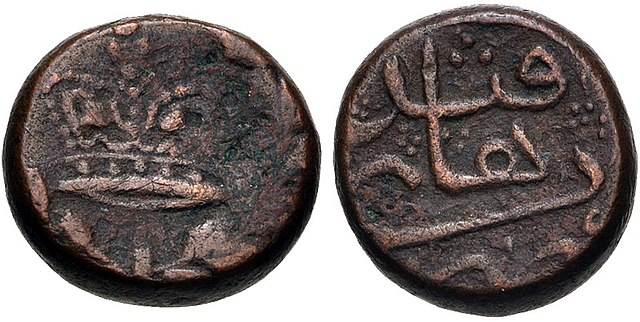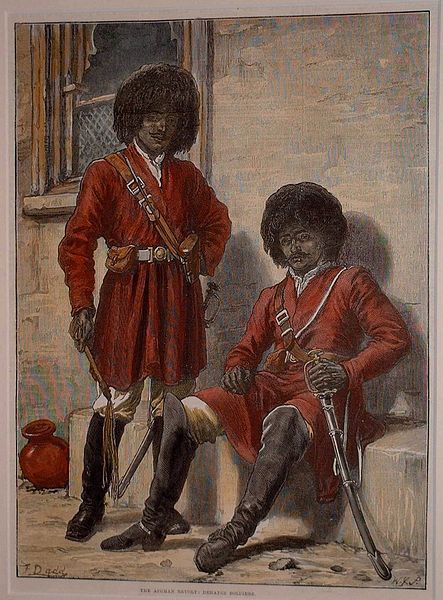The Battle of Ali Masjid, which took place on 21 November 1878, was the opening battle in the Second Anglo-Afghan War between the British forces, under Lieutenant-General Sir Samuel James Browne, and the Afghan forces, under Ghulam Haider Khan. The perceived offence of an Afghan general's refusal to allow a British envoy entrance to the country was used as an excuse to attack the fortress of Ali Masjid, as the opening battle in the war. Despite numerous setbacks, including half the troops getting lost or delayed and missing the battle entirely, the British were lucky that the Afghans abandoned their position overnight.
The interior of Ali Masjid, following the battle.
The Afghan guns, abandoned during retreat.
British troops camped on the Shagai ridge
Men of the Yorkshire Infantry, in the Fourth Brigade
The Second Anglo-Afghan War was a military conflict fought between the British Raj and the Emirate of Afghanistan from 1878 to 1880, when the latter was ruled by Sher Ali Khan of the Barakzai dynasty, the son of former Emir Dost Mohammad Khan. The war was part of the Great Game between the British and Russian empires.
92nd Highlanders at Kandahar. Oil by Richard Caton Woodville Jr.
A rare coin minted during the occupation of Kandahar. British Crown within wreath on the obverse, Arabic inscription in four lines on the reverse. These issues were struck under local authorities who routinely recalled and devalued the coppers. This abusive practice led to a great variety of types, often featuring various animal or flower motifs. Accordingly, the types on this coin were likely not ordered by the occupation authorities, but rather placed by an opportunistic engraver eager to please the occupiers.
The Afghan revolt: Herati Soldiers 1879
British team at the site of the Battle of Ali Masjid







